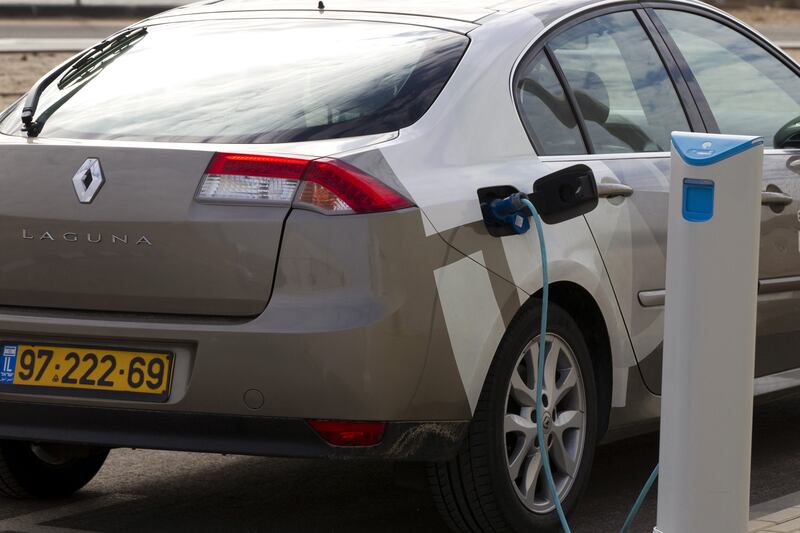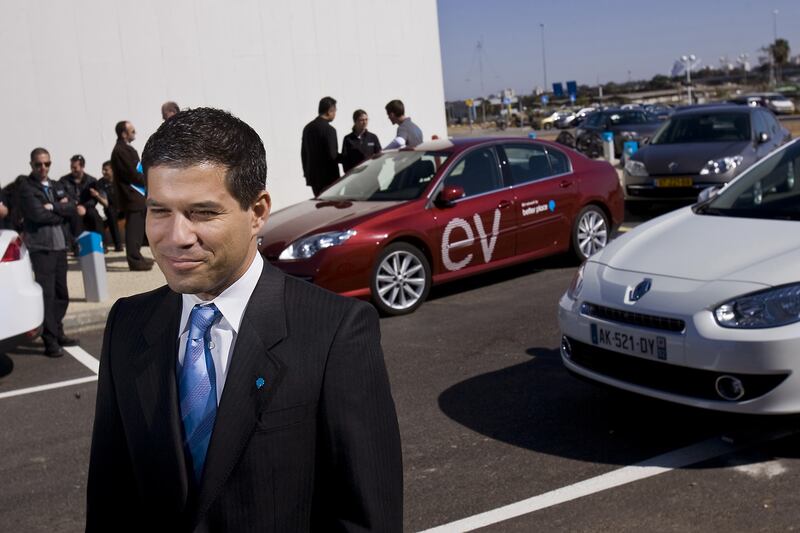It’s not all coming up green in the electric car industry. Sure, Tesla is making money and just managed to pay back its government loan. But Better Place, the Israel-based startup that raised and spent hundreds of millions of dollars to build an electric car system, has filed for bankruptcy. The brainchild of software entrepreneur Shai Agassi, a former top executive at SAP, Better Place attracted a lot of attention and capital—but not many customers.

It’s a humbling end for a bold project. If ever there was a place where electric cars made sense, it was Israel—a country with a small land mass where most trips are rather short. Israel lacks oil and few of its oil-rich neighbors particularly want to trade with it. So gasoline is very expensive, up to $8 or $9 a gallon. And with its huge new discoveries of natural gas, Israel had a great deal to gain economically for swapping electricity for oil as a transportation fuel. In addition, a big chunk of the new car market consists of companies buying fleets of cars for workers, so there was the potential for bulk sales. Finally, Agassi hoped to tap into the Zionist impulse to get behind grand national projects.
Agassi had a different vision then simply charging up cars. Better Place would eliminate range anxiety—the fear that battery-driven cars would conk out—by deploying chargers at homes and parking lots, and by setting up a network of battery swap stations. At these stations, spaced in relatively close proximity to one another, cars would pull in, and within five minutes, a robot would remove the depleted battery and install a fully charged one.

Agassi raised lots of money from institutions and venture capitalists, and Better Place set about building the infrastructure. In December 2011 I visited the company and had the opportunity to drive a Renault Fluence Z.E from the company’s headquarters north of Tel Aviv to a newly constructed swapping station about 25 miles away. It was like going to a car wash. You nosed the vehicle onto the rails and then the robots took it from there. A few minutes later, I was on the road again with a fully charged battery. It worked!
So what went wrong? As is the case with many technologies, customers didn’t respond with sufficient speed. Better Place spent a lot of money building the necessary infrastructure and technology systems. But consumers were slow to catch on. And as frequently happens in Israel, the coordination was off. Israel is known for its high-tech sector and the ability of its startups to compete on the global stage. But when projects require the close coordination of policy, local and national authorities, and the private sector, things often drag on. Israel just managed to build its first commercial solar field a couple of years ago.
Israel’s bureaucracy and red tape surely hindered Better Place. But the reality is that Israeli drivers, like consumers everywhere, like choices. And Better Place relied on a single model. The swapping stations were constructed so that they could only handle the custom-built Renault Fluence Z.E. Since Israel is a small market, getting a critical mass of users would mean Better Place would have to capture a giant chunk of the new market from the outset. That’s difficult to pull off.
Better Place noticed a few sales, but not nearly enough. And so it has filed for bankruptcy and is poised to be liquidated. Which is too bad. If the Israeli government were more rational, it would have got behind Better Place in a more forceful way—it could have committed to purchasing vehicles for the army, the prime minister, and fleets for state-owned companies. It could have massively subsidized the homegrown project. But it didn’t.
That doesn’t mean Better Place should be regarded entirely as a failure. The company is in the systems business as much as it is in the car business. Some investors or companies will pick up the infrastructure that Better Place built and do something with it. And for small, island nations (or states) where gas is very expensive and most drives are very short, electric-powered cars make a great deal of sense. Israel wasn’t the promised land for Better Place. But Hawaii, where the company has operations, could be one day.






